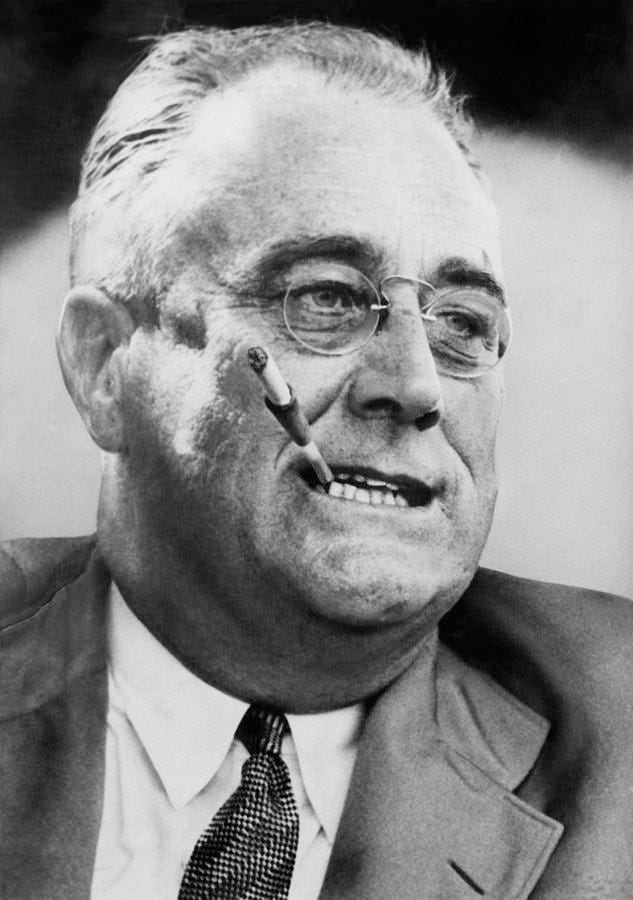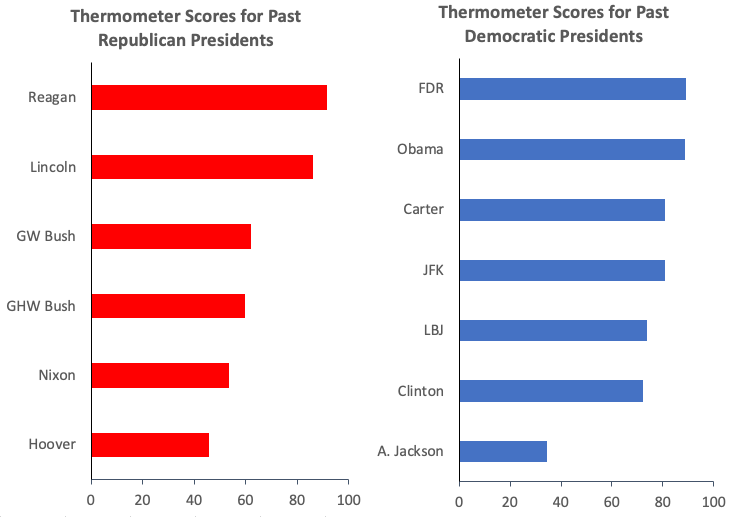Presidents and heroes, across parties
How Democratic and Republican chairs look at their parties' pasts
As regular readers know, I’ve been conducting a survey of county Republican chairs across the country every two months this year. I’ve got some results from the August wave coming out soon in Politico, but I have some other materials I’m working through here. In particular, I was interested in understanding how partisans regard their own party’s past.
Back in June, I reported the results of some questions among Republican county chairs, asking them about how they felt about various former Republican presidents. In the August wave, I also ran a survey among Democratic county chairs, and I asked them about former Democratic presidents.
I asked the Republican chairs to provide a “feeling thermometer” evaluation of six previous Republican presidents — Abraham Lincoln, Herbert Hoover, Richard Nixon, Ronald Reagan, George H.W. Bush, and George W. Bush. I asked Democrats about Andrew Jackson, Franklin Roosevelt, John F. Kennedy, Lyndon Johnson, Jimmy Carter, Bill Clinton, and Barack Obama. These thermometer scores range from 0 to 100, with 100 being the warmest one can feel toward someone. Here are the overall evaluations, ranked by declining order of popularity within each party:
So there are some subtle but, I think, important differences across party lines here. Note how the Republicans have a very clear top two favorite — Reagan and Lincoln. There’s more than a twenty-point drop from the second place president to the third place one, George W. Bush. Other than the top two, no one is above 60%.
It’s different for Democrats. With the notable exception of Andrew Jackson (the only slaveowner mentioned in the surveys), all the presidents are at 70% or above. There’s a clear ranking, but not a huge gap from Bill Clinton (at 72%) to FDR (at 89%).
I don’t want to read too much into this, of course, but one could view the Republicans here as a party that’s less comfortable with its recent past and undergoing some significant factional strife. The presidents who were popular in one era are rejected in the next. Democrats, by contrast, seem broadly comfortable with their presidents going back almost a century.
It’s not nothing that Bill Clinton has spoken at every Democratic National Convention since 1988, while George W. Bush hasn’t spoken at an RNC since he left the White House. Even Jimmy Carter, broadly rejected by the electorate in 1980, delivered remarks at the 2020 DNC. Neither of these is obviously the healthier position for a party to be in; but Republicans have been going through more of an internal realignment in recent years than the Democrats have.
Here’s another way of examining differences between these party leaders: I asked them to name someone — dead or living, real or fictitious — they consider a hero.
(You’ll like the rest of this! Please consider supporting Tusk for a mere $8 a month to read it.)
Keep reading with a 7-day free trial
Subscribe to Tusk to keep reading this post and get 7 days of free access to the full post archives.






